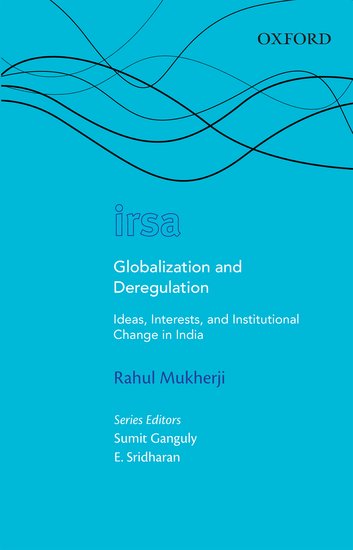Globalization and Deregulation: Ideas, Interests, and Institutional Change in India
by Assoc Prof Rahul Mukherji, FASS SASP
Published by OUP 6 May 2014

Until the early 1990s, people in India used government-owned telephone services, travelled by the national airline, and sent letters through government post offices. The dominant ideology that markets would fail if they were not state-controlled resulted in negligible foreign investments and an uncertain future for privately owned businesses in the Indian economy.
This book, part of the Oxford International Relations in South Asia series, presents an analytical history of events since the mid-1960s to a phase of globalization when private companies became major players in the Indian economy after 1991. Mukherji engages institutional theory and advocates a largely state-driven ‘tipping point’ model of economic change in his study of the shift from state-led import substitution and stringent industrial regulation to riskier liberalization and deregulation. He builds a trajectory of India’s growth story: the 1966 balance of payments crisis, the economic reforms from the mid-1970s that culminated in another severe balance of payments crisis in 1991, and the subsequent economic reforms that earned India the recognition of an Asian Tiger Economy.
South Asia has acquired a strategic role and importance in the rapidly evolving global and political scenario. The present series analyses foreign and security policies in the region
Associate Professor Rahul Mukherji of FASS’s South Asian Studies Programme.



You must be logged in to post a comment.